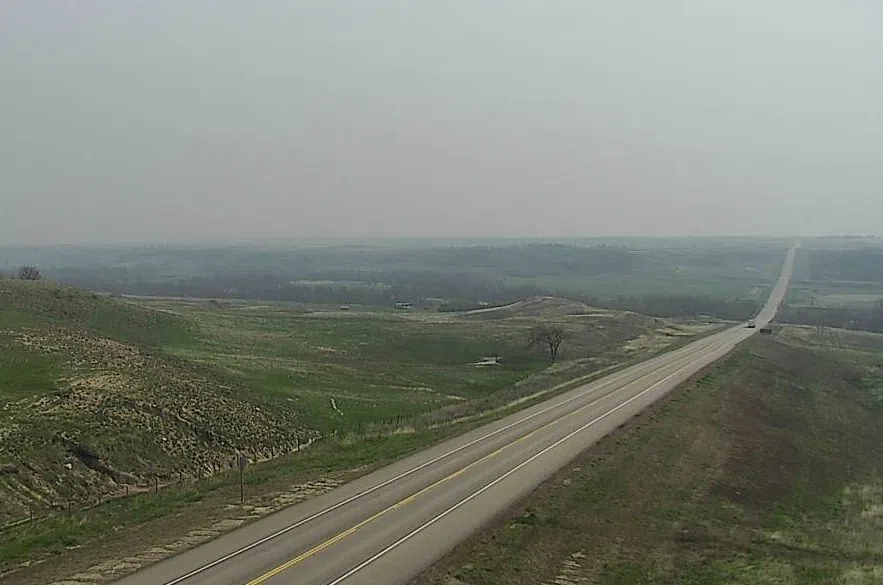Irritated eyes, a runny nose, a headache and a sore throat — those are a few of the symptoms people might experience as smoke fills the air across Saskatchewan.
As the smoke from northern wildfires makes its way through the rest of the province — a special air quality statement remained in effect Wednesday for all areas of Saskatchewan south of La Loche — people are being advised to stay indoors as much as possible.
The smoke presents a risk to people with pre-existing conditions like asthma and chronic obstructive pulmonary disease (COPD), according to Jaimie Peters, a registered nurse and respiratory educator with Lung Saskatchewan.
“It can make their lung disease flare up so they’re especially at risk when it’s smoky like this,” Peters said.
Peters said children and elderly people are highly vulnerable.
“Little kids are really more susceptible because they have literally littler lungs and they breathe faster,” she said. “So we want to make sure especially for kids, they should be staying inside.”
“Children are more active, so if they get exposed to poor air quality, they become more likely to get an infection,” added Dr. Simon Kapaj, a medical health officer with the Saskatchewan Health Authority.
Thanks to the warm weather in Saskatchewan over the last few weeks, many people were enjoying some time outdoors. According to Peters, they’ll want to avoid being outdoors as much as possible with the air quality being as poor as it is.
She encouraged people to exercise indoors if possible.
“The things you can do inside are making sure to keep your doors and windows and fireplace dampers shut,” she said. “You want to make sure the air conditioner is on recirculation (mode in your car).”
Peters said while there aren’t exact figures on just how many people will have health complications from the smoke, it’s not uncommon for hospitals and clinics to see an influx of visitors with breathing problems.
“Generally, they will see more people visiting clinics or emergency rooms because of their lung diseases flaring up at this time,” Peters said.
“We want to make sure that anyone who has asthma or COPD should have their medications up to date and filled in their homes or with them at all times. And they should always have their rescue inhaler — their fast-acting relief inhaler — with them at all times in case they’re having breathing problems.”
Peters said people won’t be able to rely on masks to reliably protect themselves against the smoke. She said that not even an N95 mask will fully protect people from the smoke.
“(The N95) will trap large particles but not the small ones,” Peters said.
“The smoke contains particulate matter, which is a very small particle that is very easy to inhale and once it gets into your lungs it can cause an infection,” added Kapaj.
Some school divisions in Saskatchewan cancelled outdoor education activities and recesses were held indoors, while a number of sports leagues in the province cancelled Wednesday’s games due to the smoke.
— With files from 650 CKOM’s Will Mandzuk







